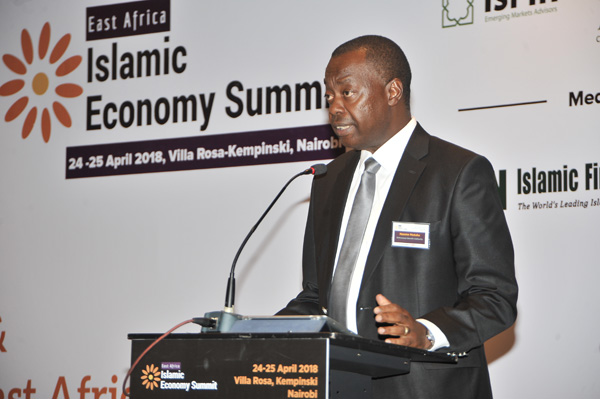Research shows that one of the causes of early deaths soon after retirement is the lack of appropriate medical care for retirees. Retirement Benefits Authority Chief Executive Officer Mutuku Nzomo says the organisation has established post-retirement medical funds that will ensure provision of healthcare upon retirement.

BY MANAGEMENT MAGAZINE
What strategies have you laid down to achieve RBA’s mandate, especially developing and promoting the retirement sector?
Our key mandate is to expand pension uptake and safeguard retirement benefits. One key strategy to achieve this is mobile people into saving for retirement.
For our core business of supervising the retirement benefits industry, we have implemented a Risk Based Supervision System (RBSS), which enables us to supervise in a proactive manner by anticipating risk areas and taking action before the risks materialise. In addition, RBSS allows us to apply our limited resources where risks are highest.
For our mandate of developing the sector, we believe that information is power. People, whether employed or not, need to understand that they can join Individual Pension Schemes that have been licensed by RBA. We have 35 Individual Pension Plans (IPPs) that cater for the vast interests of the informal sector. In the recent past for instance, RBA has been carrying out radio campaigns across vernacular and religious FM stations on the need to join pension schemes.
members of retirement benefits schemes as mandated by law, we have put in place a full Market Conduct Department that focuses on Consumer Protection, Consumer Education and Governance issues.
What is the core mandate of RBA in enlightening the public about the benefits of investing for retirement? What has been your impact so far?
Our core mandate is to grow the pension sector by encouraging many people to join pension schemes and start saving towards their retirement.
My joy has been to see the pension sector grow in leaps. Today industry assets have exceeded KSh1 trillion and coverage has passed the 20 per cent of the labour force mark. I am also gratified to note that our industry has taken an important role in helping the Government actualise its Big Four Agenda.
Another strategy has been to promote financial knowledge amongst Kenyans. We started this by working with the other domestic financial sector regulators (Capital Markets Authority, Central Bank of Kenya, Sacco Societies Regulatory Authority and Insurance Regulatory Authority) and assistance from Kenya Institute of Curriculum Development to infuse pension and other financial information in the curriculum starting in primary schools.
We are also encouraging employers to set up retirement benefits schemes for their employees, and reaching out to the self-employed to join individual pension plans. We are not only targeting Jua Kali sector workers, but also professionals such as lawyers, doctors and engineers, who given the nature of the work could miss an opportunity to save for their retirement.
How do you integrate Research into strategy development to ensure calculated steps in solving problems that face Kenyans on issues to do with retirement?
We have a research and development department whose key role is to help the Authority make evidence-based decisions. This enables us to advise the Cabinet Secretary of The National Treasury and Planning on policy issues based on the outcome of the many researches we undertake.
One of the biggest hurdle of old age is diseases and post-retirement health packages can help deal with this? What approach would you advise Kenyans to embrace?
In Kenya, retirees’ health has been neglected for a long time due to lack of comprehensive medical and a robust policy guideline.
This has seen retirees’ health needs become a burden to working relatives.
However, this is likely to change following the development of a Post-Retirement Medical Funds guideline fronted by the Retirement Benefits Authority (RBA). Just as a pension scheme provides assurance of an income upon retirement, the proposed Post-Retirement Medical Fund would ensure provision of health care upon retirement.
Studies indicate that 60 per cent of an individual’s medical costs are incurred in retirement age. It has also been observed that one of the causes of early deaths soon after retirement is the lack of appropriate medical care for retirees. The establishment of post-retirement medical funds is in response to a trend analysis report which showed health expenditure had grown to KSh73.2 billion by 2016 while the percentage of admissions for people over 65 years stood at 34 per cent in 2013 compared to 25 per cent a decade ago.
What new strategies have you embraced to continue being a strong brand in the delivery of Retirement services to Kenyans?
Since July 2010, RBA revised its supervisory approach from compliance-based to a more proactive risk based supervision system. We have recently reviewed the Risk Based Supervision System and launched a new toolkit which is more responsive to industry needs
This was to ensure integrity and financial health of the schemes, since there is quick intervention whenever a scheme shows signs of ‘ill-health’.
There is also the Trustee Development Programme which was launched in August 2011 to improve scheme administration and governance and to which we are currently reviewing the curriculum.
Due to the stringent rules in setting up and running pension schemes, most small-scale employers have often shied away from advancing this privilege to their employees.
We have registered umbrella pension schemes and Individual Pension Plans (IPPs), which allow employers to register members from different companies to save for retirement. This works well with the informal sector where members do not have the traditional “employer” as in the formal sector.
Email: management@kim.ac.ke















